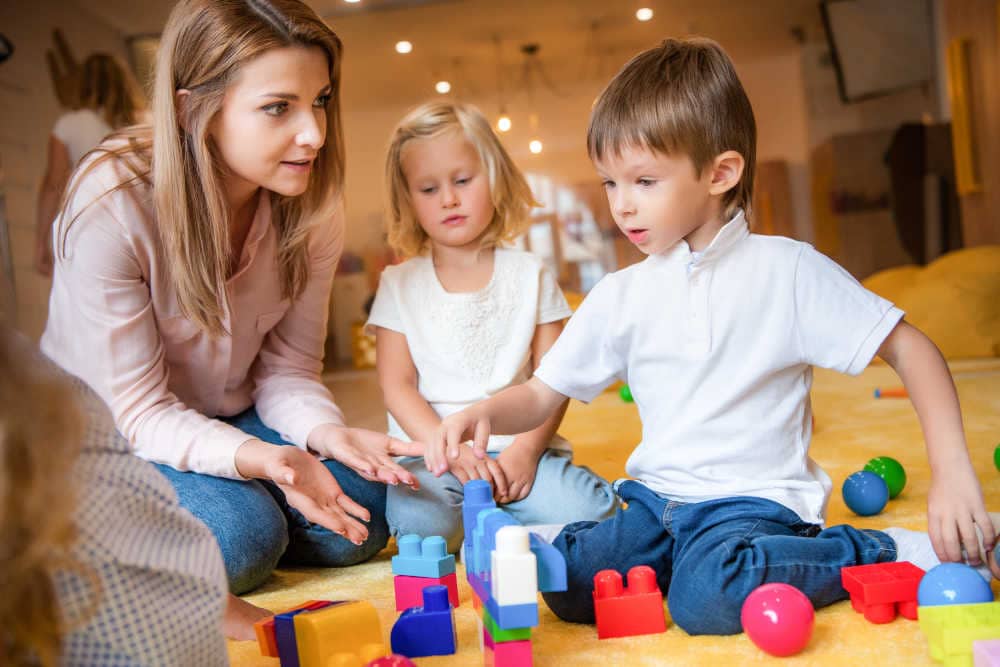It is bittersweet to send your child off to school for the first time. On one hand, you’re…
It is bittersweet to send your child off to school for the first time. On one hand, you’re excited for this milestone. On the other, it’s heartwrenching to send your baby out into the real world. In order to help both parents and children feel ready for kindergarten, I assembled ten dos and don’ts for kindergarten readiness.
This was originally published August 28, 2015.
My “big girl” starts school next week.
In preparation, we toured her school, met some of the teachers, and the principal. Despite being told multiple times we were just there to finalize paperwork, she insisted on packing her backpack, bringing a snack, and was disappointed when we left her school after a half hour.
While my sweet, eager little girl is only attending preschool for the first time, it got me thinking of how grade school isn’t that far off. Her planning, declarations to neighbourhood kids that “I’m going to a new school!” and requests to be at school before it starts has our whole family excited.

My recently retired, elementary school principal mom.
“The secretaries used to joke that I could sense a parent coming in for kindergarten registration from a mile away. I’d jump out of my office to greet them.”
Though our little girl is not starting elementary school yet (her preschool is in an elementary school), I wanted to ask my mom, what she recommends parents do to make their child’s transition into kindergarten as smooth and successful as possible. Because my mom has 40 years of experience as a primary school teacher, principal, and university instructor for students in the teaching program, she has a wealth of knowledge when it comes to school readiness and success in kindergarten.
Though these are important ‘dos and don’ts’ for kindergarten readiness, they generally apply to starting preschool, daycare or at a new school as well.

As an example, let’s say your child doesn’t want to work on writing his name. It will come in time in the classroom. Research shows children’s skills are more advanced in the context of play and their vocabulary is richer.
So, if your child does not want to print his name but loves art, find fun ways to work on his fine motor skills by using play dough or crafting. But drop their name for now. It isn’t worth creating a power struggle before school and, in the later years, homework battles have begun. If your child doesn’t have her numbers down but is eager to kick a ball, keep score as your play! Not only will focusing on a skill that isn’t going well frustrate you both, but it also won’t be particularly effective.
In terms of developing their strengths and interests, look for opportunities to say yes to or join in an activity your child loves:
It is helpful (and empowering) for a child to be able to say who his parents and siblings are. It is also great if they are able to explain who they are and where they’re from. For instance, we recently moved from the east to the Pacific North West. My children love talking about how where we used to live got piles of snow and how it was so cold.
Once home, you can create a social story or simply refer back to them and explain which one is the classroom, point out where certain things are (i.e. the bathroom, the kitchen centre, the tables where they will eat their snack, the cloakroom, etc.).
It is natural to want to minimize your child’s struggles so that he can make the best impression. By being upfront, you are setting your child and the school up for success. If your child has any struggles, the school will work to ensure the best possible environment for the child’s individualized needs and will minimize any guesswork.
In the last week or so leading up to the first day of school, establish and maintain a regular routine in your household.
Starting kindergarten is a big change. Predictability will help your child feel secure and less anxious leading up to such a big milestone.
In the case of the former, you’re delaying the inevitable and also prolonging their anticipation of you leaving. In terms of popping in, it may seem like a nice idea. However, this could disrupt and remind your child of your absence. Chances are, she will want to leave with you and will be distressed if she can’t.
This builds up relationships in the school and generates a greater sense of community for both you and your child.
This helps keep everyone on the same page and fosters feelings of connectedness and involvement.
11 Insights Your Child’s School Principal Wants You to Know
How to Respond when your Child Hates School
How to Ease Separation Anxiety in Young Children
On the First Day of Kindergarten
On the Night Before Kindergarten
Miss Bindergarten Gets Ready for Kindergarten
Giftedness isn’t just about acing spelling tests or finishing math worksheets early. Psychologists define it as an out‑of‑the‑ordinary…
Back-to-school shopping is an annual adventure in our house. From choosing that first superhero backpack for kindergarten to…
At the current time, technology dominates and, therefore, it is becoming increasingly important to inculcate a love for…